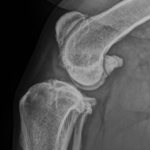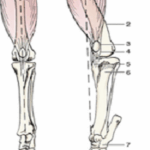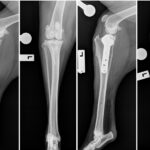
Insulin for dogs.
Just like people, dogs can develop diabetes. This is almost always insulin responsive (type 1) diabetes, unlike cats where type 2 diabetes is more common.
The first thing most owners notice is the dog drinking and peeing a lot more than normal. This is because there are very high levels of glucose in the blood, which gets filtered out into the urine. This glucose in the urine then draws a lot of water out with it, leading to increased urine production. To compensate for this, the dog needs to drink more.
There are many conditions which can cause a dog to drink and urinate more, so we will always give a dog a thorough physical examination, then perform blood and urine tests.
In a dog with diabetes, we will see a very high blood glucose reading. A normal glucose level for dogs is around 5mmol, while diabetic dogs can be as high as 20 or even 30. We will also see evidence of glucose in the urine.
Some diabetic dogs are very sick when we first see them. They can experience a condition called diabetic ketoacidosis. This is a true emergency and requires rapid and aggressive treatment with intravenous insulin and fluids to correct electrolyte imbalances.
Treating diabetic dogs can be quite challenging, but is definitely manageable with the right support and guidance. They require daily insulin injections, a carefully controlled diet and regular check ups with their veterinarian. Unlike people who can measure their glucose levels throughout the day and inject themselves as needed, we need dogs to have similar amounts of food and exercise every day to give reliable control.
We also need to ensure the dog has no other illnesses. Many diabetic dogs have bladder infections or bad teeth. These all need to be treated appropriately as infections will make the dog less responsive to insulin and result in poor control of their blood glucose levels.
Almost all dogs with diabetes will develop cataracts in their eyes which can lead to blindness. There is very little we can do to prevent this, however, cataract surgery can be performed to restore the dog’s vision and improve comfort levels (this can be done at our Eaton Vet Clinic).
With improvements in veterinary medicine diagnostic and treatment options, treating a dog with diabetes is now very achievable and these dogs can live a very happy and healthy life. It does require dedication and commitment from an owner; but if your dog is ever diagnosed with diabetes, you will not be doing it alone – we will be there to assist and guide you through the whole process.



